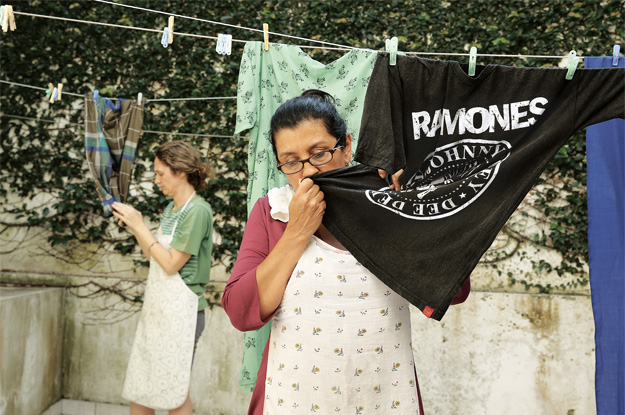Val trails nervously behind as her long-estranged daughter, Jéssica, enters the guest room of Carlos and Bárbara, an upper-class São Paulo couple. “So this is where I’ll be staying?” asks Jéssica, as she bounces on the “good mattress.” Jéssica has just arrived from the northeast and has talked her way into getting a tour of the expansive house. Living as a “guest” of the family was not in anyone’s plan—but Jéssica has broken the invisible boundaries relegating her to the maids’ quarters. The scene sets up the exploration of issues of class and motherhood by Brazilian director Anna Muylaert in her film The Second Mother.
Muylaert began conceptualizing the film after becoming a mother herself in Brazil, where live-in nannies often help raise their employers’ children. “I wanted to make a film to value those who give affection but will never be part of the family,” Muylaert told AQ.
Like other nannies in Brazil, Val was estranged from Jéssica and her own family in the northeast when she took a job in the southern city. For years she accepted without question the unspoken boundaries of her employment — keeping house for Bárbara and Carlos and caring for their teenage son, Fabinho, while remaining in her “place” as the help. Jéssica’s arrival changes everything. The strong-willed teenager not only refuses to follow the implicit class structures, but she also forces both Val and Barbara to address their shortcomings as mothers: Each is too busy with their jobs to care for their own children.
Since its first release in Italy in June 2015, the film has won several awards, including the Special Jury Prize for Acting at the Sundance Film Festival. It is available in the U.S. on DVD and Amazon Prime.
—
Bintrim is an editor for AQ.



